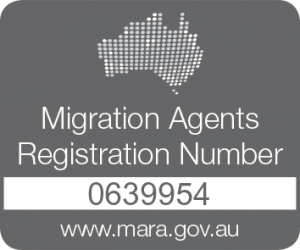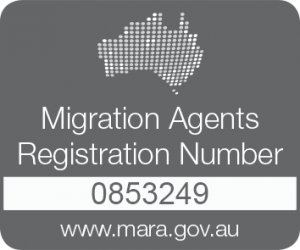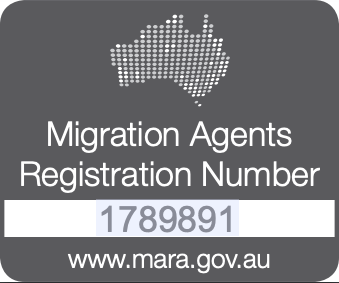First Class Migration Newsletter – New Financial Year 2016
First Class Migration Newsletter – New Financial Year 2016
First Class Migration Newsletter – New Financial Year
Happy New Financial Year to our clients and friends!
And as always with the new financial year comes changes to legislation and processing procedures from the Government and the Department of Immigration and Border Protection.
We encourage you to take a few minutes to review this edition of the newsletter in its entirety as there are some important policy changes in relation to the 457 nomination and “genuine position”.
Starting with the Good News!
Application Fee Increases – no application fees this financial year
Updated Processing times for 457 Visa Applications from the DIBP:
Initial Assessment : 40 Working Days (8 weeks)
(This is the first assessment of an application.)
Case related Emails: 5 Working Days
(Communication between Agent and Department)
Requests for More Information: 28 to 56 Working Days.
(Assessment of provided requested supporting documentation)
It is therefore essential that we lodge decision ready applications with all information and documentation so as not to receive an RFI which will delay the process further by 28-56 days
Please also note:
· Cases may fall outside service standards if they require appropriate/necessary ongoing investigation and processing.
Our First Class Migration staff will keep you updated throughout the application review process with any updates or status changes to the application.
New Policy:
Genuine position
Regulation 2.72(10)(f) provides that the Minister must be satisfied that the position associated with the nominated occupation is genuine.
This is considered an important regulatory criterion in terms of ensuring that the intention of the 457 programme is met – that is, it is used to address temporary skill shortages, for specific nominated occupations included in the CSOL, in circumstances where an Australian worker cannot be sourced. It was introduced to provide the Department with the ability to refuse a nomination if there were indicators that a semi-skilled position had been ‘dressed up’ to appear more skilled in order to facilitate a visa for a person.
To avoid doubt, the requirement is not that the position itself must be genuine or ‘needed’, rather it is that the position associated with the nominated occupation must be genuine. That is, the position must exist and also be what it purports to be.
Position created to secure a migration outcome
The 457 programme is designed to enable employers to address labour shortages by bringing in genuinely skilled workers in circumstances where they cannot source an appropriately skilled Australian to fill the position. As a result, it should not be used by businesses primarily to “create a position” – for example, in order to facilitate the entry, or stay, of the nominee and/or a family member to Australia rather than using more appropriate visa pathways where available.
Eight examples of factors that might indicate that facilitating the entry or stay of the nominee is the primary objective of the application are:
- The nominee is a relative or personal associate of an officer of the sponsoring business. Officers should check departmental records for details of the sponsorship application and ascertain whether there is a direct or indirect relationship between the nominee and any owner/officer of the sponsoring business.
- The nominee is a director or owner of the sponsoring business. If the business is a company and an ASIC historical extract has not been provided the business should be requested to provide one if necessary to ascertain whether the nominee is an owner or director or shareholder.
- The nominee is currently in Australia and already working for the sponsor and/or the nominee’s immigration history in Australia suggests that their primary motive is to stay in Australia on any type of visa.
- The business has been in existence for a very short period of time (for example, the business was created in the last 3-6 months and appears to have just been “created” for the purpose of migration).
- The proposed salary is significantly lower or significantly higher than industry standards.
- The business has a relatively small turnover that could indicate that at the nominated salary provided it would be difficult to support the number of proposed employees at the business.
- The business does not employ any or employs very few Australian employees.
- There is evidence that the business may have received, or will receive, payment from the nominee for lodging the nomination. In this case, refer the case to 457 programme management – for more information refer toCertification regarding paying for visa sponsorship
Note: The above policy settings do not prevent individuals from sponsoring themselves (that is, “self-sponsorship”) – however, in such cases there needs to be another reason for the position being created. It cannot just be to facilitate a long-term stay in Australia and/or create a pathway to permanent migration. Such arrangements can be approved under policy if there will be a genuine economic benefit resulting to Australia (for example, an innovative IT entrepreneur intends to move their business to Australia, which will support growth in the technology sector and create jobs for Australians).
Addressing concerns about genuine position
Further guidance
To facilitate consistency in decision-making and ensure the policy settings are being implemented as intended, it is important that officers consider the additional guidance provided immediately below when assessing a nomination application against regulation 2.72(10)(f), taking into account information provided in the individual nomination application, as well as any relevant supporting documentation.
Acknowledging that regulation 2.72(10)(f) is subjective in nature, under policy, officers should consider the following five factors, which adds weight to an assessment that the position associated with the nominated occupation is genuine:
- There is evidence relating to a previous occupant employed in the position – for example, there was a previous 457 holder in the position or the business has indicated that an Australian was previously holding this position but has since left.
- There is evidence that the position has been advertised and filled through a transparent recruitment process.
- The position is a highly skilled position with specific tasks outlined in ANZSCO (as opposed to a generalist ill-defined role).
- The position fits clearly within the scope of the activities of the business.
- The business has provided evidence that demonstrates that new positions are required.
Factors supporting ‘genuine position’
Evidence that can be useful to support such an assessment is provided in the Border website’s Nomination document checklist (Temporary Work (Skill) Visa (Subclass 457) Document Checklist for Visa Applicants) and includes:
- a breakdown of the organisational structure (organisation chart) to indicate how the position fits into the business activity
- an outline of the goods or services produced by the business and how the position and its associated duties contributes to maintaining or enhancing the volume and/or quality of these outputs (this may include detailed and quantifiable plans for future expansion)
- evidence that the position has existed and been previously occupied, but has become vacant through attrition or is currently occupied by a temporary resident
- increase in business activity over previous months or years (for example, new contracts won, increased demand) requiring persons in the nominated occupation
- hours of operation and/or growth in customer numbers which explain why additional staffing may be required – that is, to meet increased demand and ensure coverage across the working week
- evidence as to what percentage of the sponsor’s workforce are Australian citizens or permanent residents and
- overtime work, or increases in overtime work, for employees currently in the nominated occupation.
Note:
- Additional advice for clients and agents on useful evidence in this space is on the Border website’sNomination document checklist.
- If possible, independently verifiable evidence should be provided (for example, copies of contracts, purchase orders from third parties) as this will be given the greatest weight by visa decision-makers.
- Under policy, ‘genuineness submissions’ containing information specific to the business that are written by the sponsoring business should be given reasonable weight.
- “Genuineness submissions” that contain generic template information (for example, use a template provided by an outsourced company) or that rely heavily on speculative or non-specific reports or media articles should be given little weight. Such information is usually not tailored to individual companies and hence may not accurately reflect the current situation in the business.
Factors not supporting ‘genuine position’
Under policy, eleven factors that might add weight to an assessment that the position associated with the nominated occupation is not genuine are:
- There is evidence that the industry in which the nominating employer operates is in decline.
- According to a reputable source (for example,gov.au) there is an average or above-average rate of unemployment in the nominated occupation/industry.
- The nominating employer has taken one or more of the following four actions in regard to employees in the nominated occupation or similar occupations:
- retrenchment in the previous 12 months
- reduction of hours worked during the previous 12 months
- reduction in pay and conditions within the previous 12 months and/or
- employment of a temporary visa holder on conditions less favourable than those for Australian employees.
- The sponsor is a small business employing multiple 457 holders or other temporary foreign workers in similar positions and/or the sponsor has no, or very few, Australian employees.
- The nominated positions are managerial in nature and the proposed salary is at the lower end of the market salary rate range for such a position.
- The nominated occupation is one that:
- the ANZSCO dictionary lists only very broad, generic tasks (for example, Marketing Specialist, Program or Project Administrator, Specialist Manager NEC) and/or
- the Department has previously identified a trend of the sponsors using the occupation in an attempt to utilise the 457 programme inappropriately – that is, to accommodate semi-skilled workers, or undermine other visa programmes.
- The sponsor is an overseas business and the sponsor seeks to employ the visa holder through an associated entity in Australia.
- The sponsor is an overseas business that has been approved to establish a branch of the business in Australia and the positions nominated are not such that the nominee would be assisting in establishing the Australian business or be responsible for a substantial part of the operations of the business in Australia.
- There appears to be inconsistent information provided regarding the tasks that the nominee will perform and/or these do not appear to align with those outlined in ANZSCO.
- The list of tasks provided in the application form has been substantially copied from the ANZSCO dictionary into the application form or job description.
- The sponsor seeks to nominate a General Manager and:
- is a company involved in trading activity (imports/exports) with no other employees except for its directors or
- is a business whose main source of revenue is rental income from domestic properties it owns (for example, renting rooms to overseas students).
Note: Under policy, nominations lodged for certain occupations should also be carefully scrutinised to determine whether the position associated with the nominated occupation is not genuine. These are nominated occupations in which the Department has previously identified sponsors attempting to utilise the 457 programme inappropriately – that is, to accommodate semi-skilled workers, or to circumvent/avoid having to use other visa programmes. For advice on particular occupations, refer to Advice on certain nominated occupations.
Important:
- This does not mean that nominations in such circumstances cannot be approved and are not acceptable within the 457 programme. Nominations that meet the regulatory criteria must be approved.
- If concerns are raised pre or post finalisation of a nomination application, it is noted that a referral can be made to the Sponsor Monitoring Unit who can visit the business, check the nature of the tasks being performed by the visa holder, and ensure that the sponsor is complying with their obligations under the 457 programme.
First Class Migration Australia Legal Fee Increase:
In light of this extra policy relating to “genuine position” and the extra workload for each and every 457 nomination application, First Class Migration Australia will need to increase their legal fees in relation to the 457 nomination applications. We will email each and every client to advise them of the fee increase (emails will be sent out by the end of next week). We maintain our commitment to provide a professional, efficient, cost effective service to all of our clients, and the fee increase will still see our legal fees being extremely competitive in the market place.





